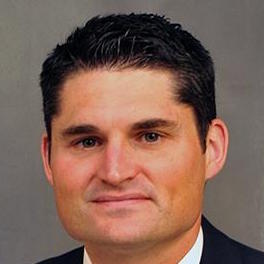Two faculty members at the University of Colorado School of Medicine are key contributors to a set of COVID-19 guidance for cardiologists released today by the American College of Cardiology.
William Cornwell, MD, assistant professor of medicine in cardiology, and Larry Allen, MD, professor of medicine in cardiology, are among the 20 experts nationwide who contributed to the clinical pathway, published March 16 in the Journal of the American College of Cardiology.
“COVID has changed everything, and over time, we’ve learned that the cardiovascular complications are not a minor issue,” Cornwell says. “This virus behaves a little differently than many other viruses, and there are many more issues related to heart health that you have to think about after somebody gets a COVID-19 infection.”
The guidance provide a decision pathway for the evaluation and management of adults with cardiovascular consequences of COVID-19. It includes sections on myocarditis (inflammation of the heart) following COVID-19 infection or vaccination; guidance on resuming exercise following COVID-19; and patient-centered approaches for treating long COVID, a condition defined by a pattern of new, returning, or persistent health problems that individuals experience four or more weeks after COVID-19 infection.
Reported by 10%–30% of infected individuals, long COVID is characterized by symptoms including profound fatigue, brain fog and confusion, tachycardia (increased heart rate), exercise intolerance, lightheadedness, chest pain, and shortness of breath.
Hope for people with long COVID
Cornwell contributed to the section on long COVID, based largely on an exercise protocol he developed for the condition that has shown positive results.
“It may be a little hard to appreciate how severe long COVID symptoms are until you take care of people who have had it — people who can only get up and walk around for two or three minutes and then have to sit down because of fatigue, or lightheadedness, or confusion,” he says. “That is devastating. But the message I want people to have is that this is a treatable condition. We developed an exercise program for patients with long COVID, and after about three or four months, their symptoms may improve significantly. For some patients, the symptoms may resolve entirely. ”
That exercise program — which includes replacing upright exercise like walking or jogging with recumbent or semi-recumbent exercise like rowing, swimming or cycling, and gradually increasing exercise duration over time — is the same protocol published in the American College of Cardiology guidance. The long COVID section of the document also includes guidance on testing, treatment, and additional interventions that should be considered on a case-by-case basis, including increased salt and fluid intake, elevation of the head during sleep, support stockings, and possibly pharmacological treatments such as beta blockers.
“It breaks my heart that people are suffering from depression and committing suicide because of these symptoms,” Cornwell says. “It really hits home when people haven’t worked for months on end, and they’re on the verge of losing their homes because they can’t go back to work. But there is hope. There’s a treatment for this.”
Identifying and treating COVID-associated myocarditis
Allen oversaw the section on myocarditis after COVID-19 and following COVID-19 mRNA vaccination. Although rare, the inflammation is more often seen in men age 12–29 in both cases.
“If the myocarditis is severe, people end up with associated heart failure,” Allen says. “Those cases are relatively rare, but when they happen, they’re significant. The function of the expert consensus decision pathway is to describe COVID-19 myocarditis in terms of its frequency, its manifestations, and its range of severity.”
For patients with mild or moderate forms of myocarditis, hospitalization is recommended to closely monitor for worsening symptoms while patients undergo follow-up testing and treatment. Patients with severe myocarditis should be hospitalized at centers with expertise in advanced heart failure, mechanical circulatory support, and other advanced therapies.
“We want to give people guidance on not only initial testing and when that’s appropriate, but then based on what those tests show and the clinical course of the patient, to help people think about what additional testing and treatments should be implemented and when patients should get referred for higher level of care,” Allen says.
Allen hopes the new guidance brings increased recognition to the impact the pandemic has had on cardiovascular health. He says it’s an honor to have been asked to help compile the pathway for the American College of Cardiology.
“When you put together a diverse group of people with different perspectives and experiences and training, it really is rewarding to see how that collective knowledge can clarify an area that is somewhat confusing and still being developed,” he says. “We don’t have all the answers yet, but I feel like the document has some really thoughtful approaches based on our first two years of experience from the pandemic.”






